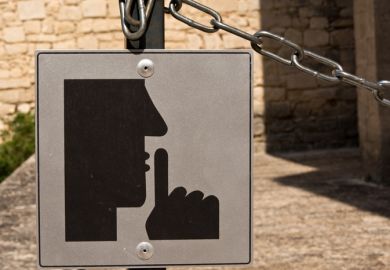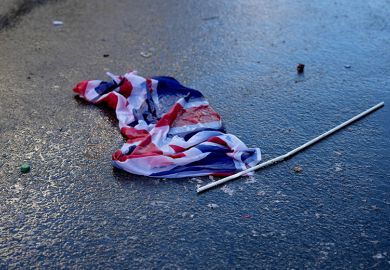Universities on both sides of the Atlantic have raised concerns about broader National Institutes of Health (NIH) reporting rules for consortium grants, which they say conflict with data-protection laws, among other issues.
Two groups of leading US universities and more than 80 European universities have raised alarm about the changes the NIH’s sub-award and consortium grant agreements, which will require foreign partners to share, every three months, “all lab notebooks, all data and all documentation that supports the research outcomes”.
The Association of American Universities and the Association of Public and Land Grant Universities, which together represent more than 300 institutions across the US, Canada and Mexico, criticised the NIH’s “overly broad” definition of scientific data, which they said would create conflict with European Union data-protection rules and the agency’s own guidance on data storage.
The European universities said they had “grave concerns” about such conflicts and that they would complicate or hinder the foreign institutions or companies from being part of current and future consortia.
The American Society for Biochemistry and Molecular Biology said that, rather than hoovering up all data every quarter, it should instead be made available by the project lead when the agency requested.
Complying with the NIH’s new-found appetite for even distantly related project data would cause major headaches and costs from anonymisation and translation, the Europeans said, even while project overheads were already “well above” the 8 per cent the NIH budgets for awards.
They said the changes, which are due to come into force from October, were “redundant” because of existing controls and “will complicate and may tarnish existing research collaborations between the US and Europe”.
The funder’s fresh scrutiny of sub-awards comes after the US Department of Health’s internal watchdog found in January this year that the NIH and the non-profit EcoHealth Alliance failed to effectively monitor sub-awards, including for work at the Wuhan Institute of Virology on coronaviruses, which is central to the lab-leak theory of Covid-19’s origins.
Inspectors found that the funder failed to follow up with the grantees for almost two years. “With improved oversight, NIH may have been able to take more timely corrective actions to mitigate the inherent risks associated with this type of research,” the watchdog said.
The European universities have asked the agency to reconsider the strict new data requirements, while their US counterparts asked for clarification of the apparent conflicts with local data laws.
Register to continue
Why register?
- Registration is free and only takes a moment
- Once registered, you can read 3 articles a month
- Sign up for our newsletter
Subscribe
Or subscribe for unlimited access to:
- Unlimited access to news, views, insights & reviews
- Digital editions
- Digital access to THE’s university and college rankings analysis
Already registered or a current subscriber?








